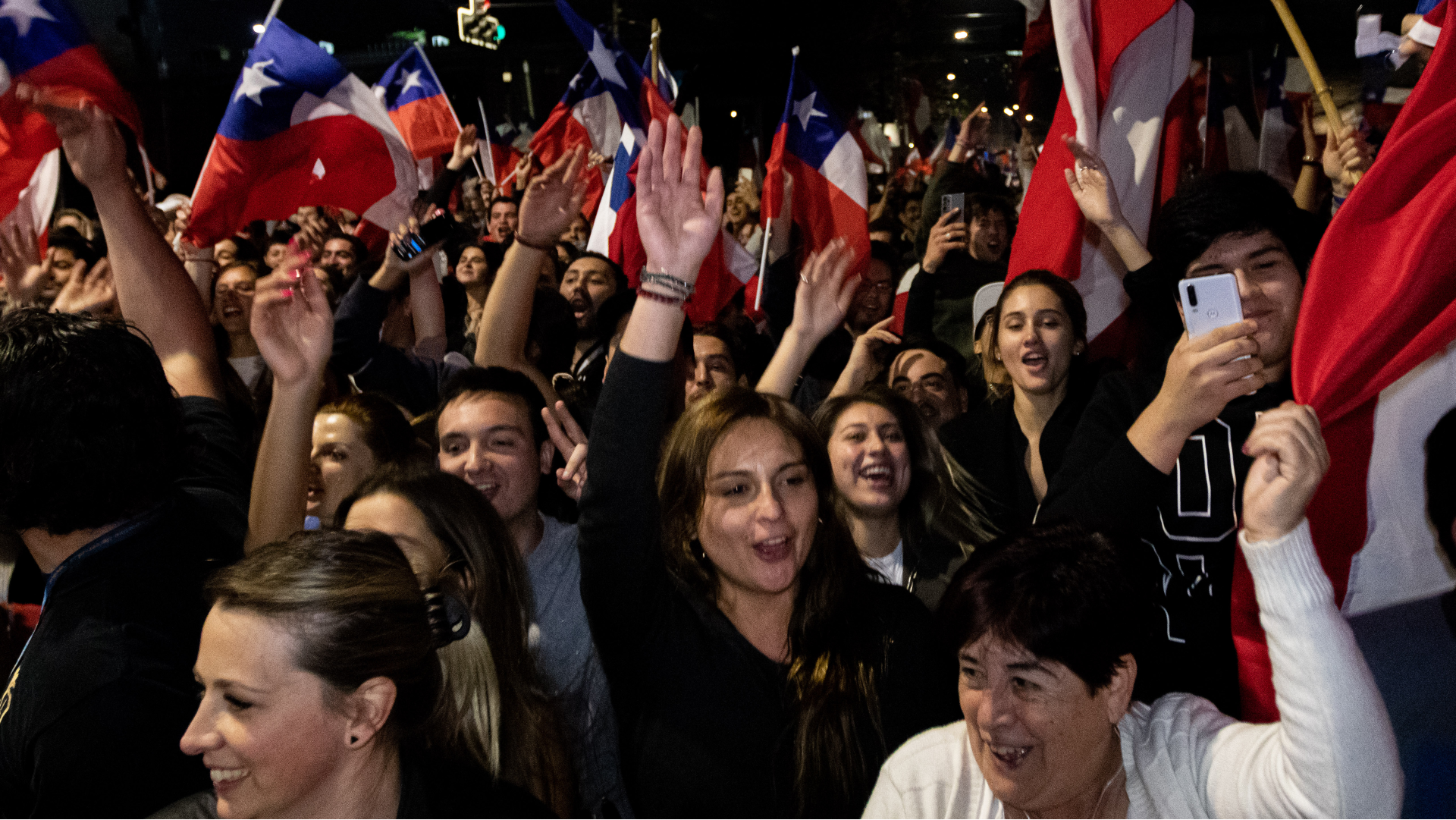Chileans vote to reject new progressive constitution
Indigenous rights, environmental protections, gender parity and legalised abortion prove too radical for voters

A free daily email with the biggest news stories of the day – and the best features from TheWeek.com
You are now subscribed
Your newsletter sign-up was successful
Chileans have voted overwhelmingly against a new constitution that would have been one of the most progressive in the world.
With almost all votes counted, reports suggest that nearly 62% rejected the draft constitution. The margin of defeat is much larger than opinion polls had suggested and is “a slap in the face” for 36-year-old President Gabriel Boric, who had backed the new document, said the BBC.
Following mass protests three years ago that rocked a country long seen as a bastion of stability in South America, some 80% of Chileans voted in 2020 to replace the existing constitution drawn up by former military dictator Augusto Pinochet in 1980.
The Week
Escape your echo chamber. Get the facts behind the news, plus analysis from multiple perspectives.

Sign up for The Week's Free Newsletters
From our morning news briefing to a weekly Good News Newsletter, get the best of The Week delivered directly to your inbox.
From our morning news briefing to a weekly Good News Newsletter, get the best of The Week delivered directly to your inbox.
The new document “included a long list of social rights and guarantees that had appeared to respond to the demands of that vast social movement”, reported The Guardian.
The constitution would have enshrined gender parity across government and other organs of the state, requiring by law “for the first time anywhere in the world” that women hold at least 50% of positions in official institutions. It would have also declared Chile a “plurinational” state, recognising the rights of Chile’s indigenous populations, which make up about 13% of the population.
Dwindling support for the new constitution “could at least partly be blamed on the prominence given to Chile’s Indigenous population”, said DW, as well as fears it would “legalize abortion in a country where half of the population is Roman Catholic”. Critics said the proposed charter “was too long, lacked clarity and went too far in some of its measures”, said Al Jazeera.
The BBC added that mandatory voting may have meant that “voters who had even slight doubts about the text chose to reject it in the hope that a new version would prove more to their liking”.
A free daily email with the biggest news stories of the day – and the best features from TheWeek.com
“What happens now amounts to a big question mark,” said France 24. Chile’s political leaders “of all stripes” agree that the constitution, which dates from the country’s 1973-1990 dictatorship, needs to be updated, but exactly when and how this process will take place remains to be seen. Until then, said The Guardian, “Chile’s future looks decidedly uncertain”.
Elliott Goat is a freelance writer at The Week Digital. A winner of The Independent's Wyn Harness Award, he has been a journalist for over a decade with a focus on human rights, disinformation and elections. He is co-founder and director of Brussels-based investigative NGO Unhack Democracy, which works to support electoral integrity across Europe. A Winston Churchill Memorial Trust Fellow focusing on unions and the Future of Work, Elliott is a founding member of the RSA's Good Work Guild and a contributor to the International State Crime Initiative, an interdisciplinary forum for research, reportage and training on state violence and corruption.
-
 Local elections 2026: where are they and who is expected to win?
Local elections 2026: where are they and who is expected to win?The Explainer Labour is braced for heavy losses and U-turn on postponing some council elections hasn’t helped the party’s prospects
-
 6 of the world’s most accessible destinations
6 of the world’s most accessible destinationsThe Week Recommends Experience all of Berlin, Singapore and Sydney
-
 How the FCC’s ‘equal time’ rule works
How the FCC’s ‘equal time’ rule worksIn the Spotlight The law is at the heart of the Colbert-CBS conflict
-
 Epstein files topple law CEO, roil UK government
Epstein files topple law CEO, roil UK governmentSpeed Read Peter Mandelson, Britain’s former ambassador to the US, is caught up in the scandal
-
 Iran and US prepare to meet after skirmishes
Iran and US prepare to meet after skirmishesSpeed Read The incident comes amid heightened tensions in the Middle East
-
 Israel retrieves final hostage’s body from Gaza
Israel retrieves final hostage’s body from GazaSpeed Read The 24-year-old police officer was killed during the initial Hamas attack
-
 China’s Xi targets top general in growing purge
China’s Xi targets top general in growing purgeSpeed Read Zhang Youxia is being investigated over ‘grave violations’ of the law
-
 Panama and Canada are negotiating over a crucial copper mine
Panama and Canada are negotiating over a crucial copper mineIn the Spotlight Panama is set to make a final decision on the mine this summer
-
 Why Greenland’s natural resources are nearly impossible to mine
Why Greenland’s natural resources are nearly impossible to mineThe Explainer The country’s natural landscape makes the task extremely difficult
-
 Iran cuts internet as protests escalate
Iran cuts internet as protests escalateSpeed Reada Government buildings across the country have been set on fire
-
 US nabs ‘shadow’ tanker claimed by Russia
US nabs ‘shadow’ tanker claimed by RussiaSpeed Read The ship was one of two vessels seized by the US military